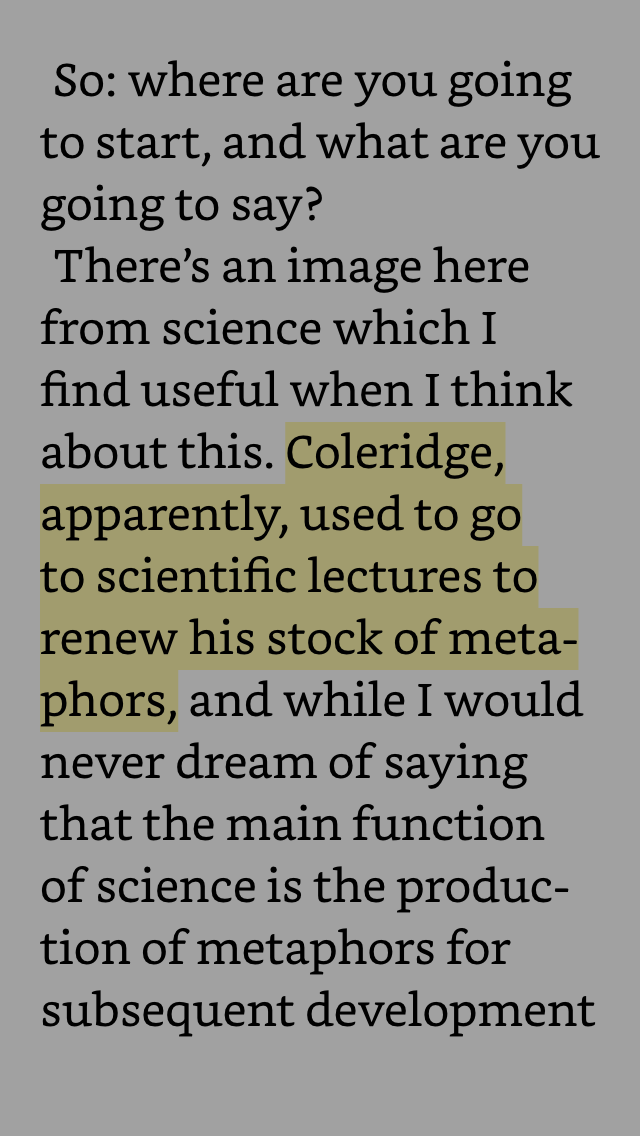This moment from Neuropolis: A Brain Science Survival Guide:
"In his 1940 lecture series Dynamics of Psychology, however, German psychologist Wolfgang Köhler praised ‘trespassing as a scientific technique’, on the grounds that what is merely special data in one field may turn out to have much broader significance in another. Now this doesn’t mean the trespasser sees the big picture in a way that eludes everyone else. Trespassing can be helpful by accidentally treading spores from one field into another, where they unexpectedly start fizzing and wriggling into life. Or the trespasser might find fertilizer sacks full of rubble and rusty cogs blocking the entrances to badger setts. Certainly one of the great joys of researching this book has been to disinter fascinating brain science buried under all the reductive bluster."
Chimed rather well with this story of minimum description length and why hiring the 'best' people produces the least creative results :
"While in graduate school in mathematics at the University of Wisconsin-Madison, I took a logic course from David Griffeath. The class was fun. Griffeath brought a playfulness and openness to problems. Much to my delight, about a decade later, I ran into him at a conference on traffic models. During a presentation on computational models of traffic jams, his hand went up. I wondered what Griffeath – a mathematical logician – would have to say about traffic jams. He did not disappoint. Without even a hint of excitement in his voice, he said: ‘If you are modelling a traffic jam, you should just keep track of the non-cars.’ "

